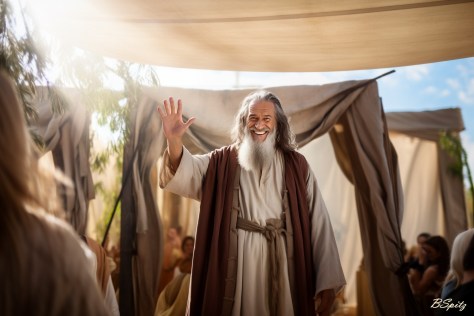PDF version for print: Kli Yakar Vayera
A Fertility Strategy (Vayera)
Every charitable act is a stepping stone toward heaven. -Henry Ward Beecher

Three travelers, who turn out to be angels, stop by Abraham who is just recovering from having circumcised himself at the age of 99 years old. Abraham rushes to greet them and give them water and food, as well as shade from the hot Canaanite sun. One of the travelers prophetically declares:
‘I will certainly return unto thee when the season cometh round; and, lo, Sarah thy wife shall have a son.’ Genesis 18:10
Abraham and Sarah are the classic biblical example of an infertile couple. After years of trying, after tearful prayers, after attempting every conceivable and even some unusual strategies, they frankly give up. When they reach advanced ages, it is naturally impossible for Sarah to conceive and unlikely for Abraham.
There are various rabbinic explanations given as to why they were tested in this fashion and why it took so long. Rabbi Shlomo Ephraim of Prague, the Kli Yakar (1550-1619) on Genesis 18:6 explains why they finally had a child.
He compares the case to another hauntingly parallel story in the Bible. The prophet Elisha is given extravagant (for those days) hospitality by an older woman of Shunam who recognizes Elisha as a man of God (see II Kings 4:8-17 for the story). Though past child-bearing age, she is blessed with a son, in almost the same language and words as the prophetic announcement of Sarah’s birth to Isaac:
‘At this season, when the time cometh round, thou shall embrace a son.’ II Kings 4:16
The Kli Yakar explains that a possible reason for their blessing and miraculous births was simply because of their great hospitality.
May our acts of hospitality give birth to many blessings.
Shabbat Shalom,
Ben-Tzion
Dedication
On the marriage of Atara Razin and Baruch Katz. Mazal Tov!


















